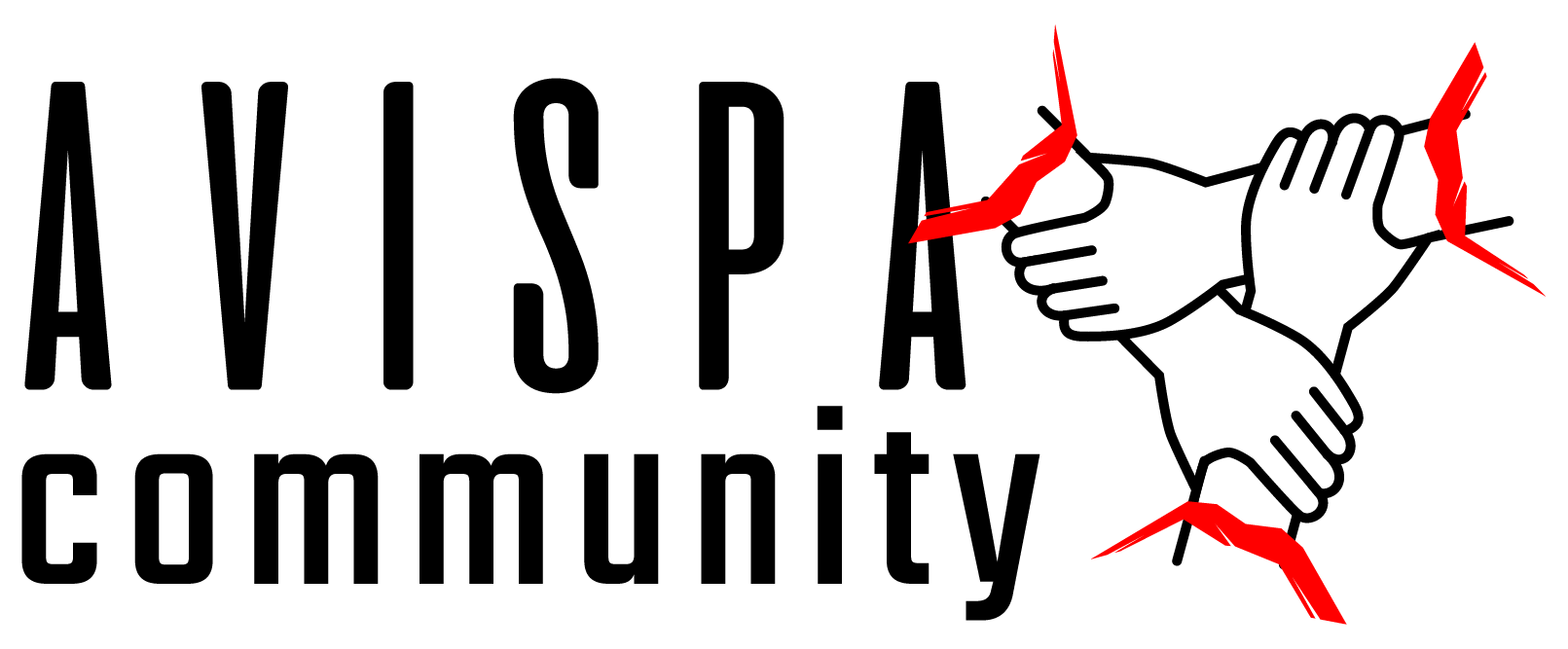Cover image: Maya Q’eqchi’ families from the community of Buena Vista, on the north side of Lake Izabal. Photo: Juan Bautista/ Prensa Comunitaria
On the morning of Wednesday, May 22, hundreds of policemen from the National Civilian Police (PNC) of Guatemala evicted the Maya Q’eqchi’ community of Buena Vista Tzinté, located on the north side of Lake Izabal, in Guatemala.
After their previous location was declared uninhabitable by the National Coordinator for the Reduction of Disasters (CONRED) due to landslides in the Sierra Santa Cruz, since 2015, the families of Buena Vista have occupied the lands that their grandparents claimed ancestrally, and where until just a few days ago they planted food for self-sustenance.
In total, 29 families were expelled from seven caballerias (an extension of agricultural land of between 6 to 43 hectares) pertaining to the micro region “El Bongo.” This property is claimed by the agroindustrialist Luis Fernando Arriaza Migoya, owner of oil palm monoculture crops that supply the company Naturaceites, also denounced for using violence to expand its operations in the region of the Polichic Valley.
According to a report from Prensa Comunitaria, the conflict over the lands originated in 1980, when Arriaza Migoya “appropriated 7 caballerias of Bongo.” Between 2019 and 2021, the campesino families were subjected to eviction attempts by the agroindustrialists that maintain monoculture oil palm crops on those lands.
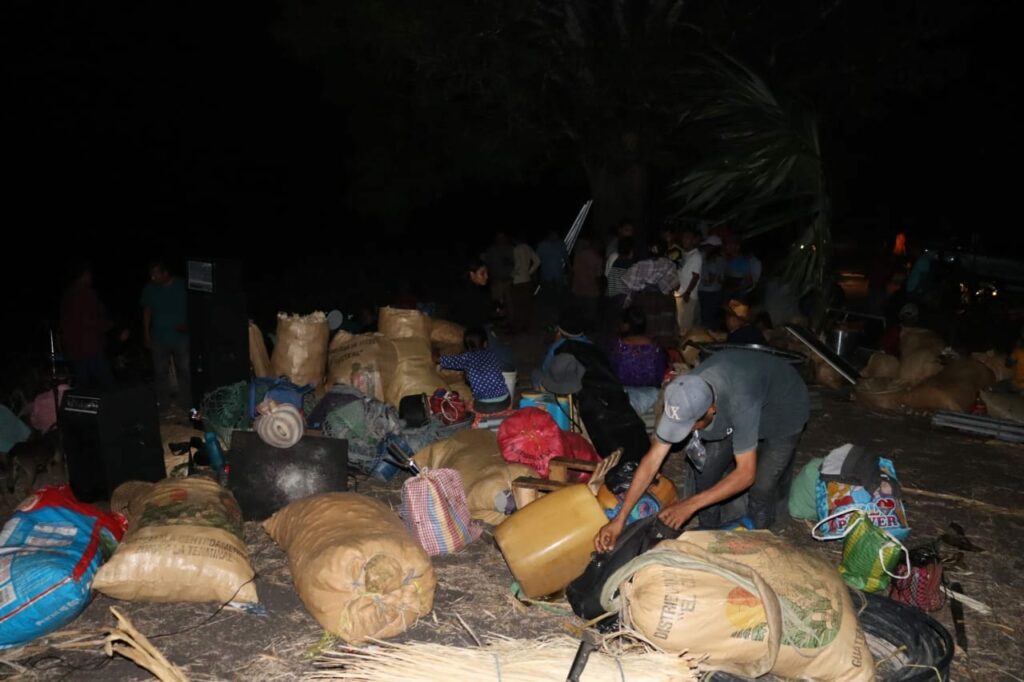
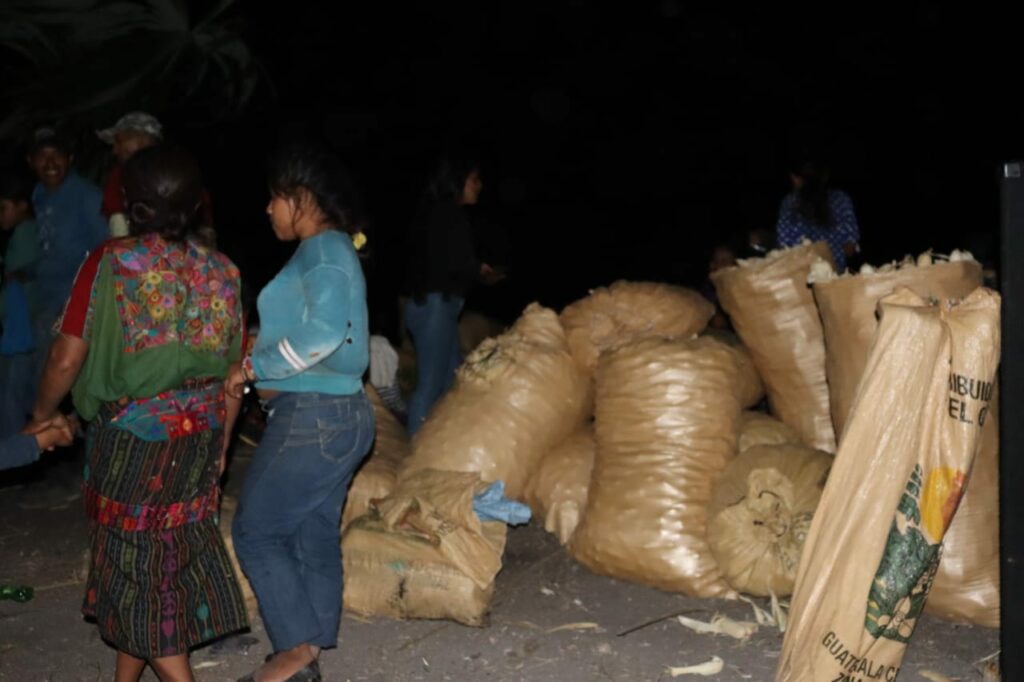
Families spent the night in the open without shelter. Photo: Prensa Comunitaria
Since 2016, the Chamber of Agriculture has accused the campesinos of invasion and land usurpation from the Tzinté Estate. Through the coffee businessman Nils Pablo Leporowski Fernández, the agroindustrial association pressured the Guatemalan judiciary to evict the families, claiming, through a complaint before the Human Rights Attorney, that the campesinos were destroying the forest.
Now, children and adults are suffering without housing after being displaced by an order emitted by judge Sandra Nineth Ayala Tello, of the Peace Court of El Estor, in response to claims of alleged environmental crimes.
A communique signed by the Comité de Unidad Campesina (CUC) asserts that this sentence is still not final, as it is currently being appealed. “Despite this, the Peace Court has proceeded with the eviction,” denounces the organization accompanied by social organizations at the international level.
The organization points out that the Tzinté Estate supplies fresh fruit bunches to the Pataxte processor, on the south side of Lake Izabal, owned by Naturaceites. In turn Naturaceites sells its palm oil to Ferrero, the third largest chocolate confectionary company in the world.
“It is clear that the eviction is being pushed by an irregular judicial order. The Tzinté Estate, where the families live, is part of a group of properties under judicial investigation for different irregularities; an investigation that still has not advanced. These actions are being pushed by occult powers that have coopted corrupt judges and courts who endorse these illegal orders,” states CUC.
Worse still, according to testimonies gathered by the journalist Carlos Ernesto Choc, in addition to the eviction, six people have arrest warrants out for them, three of them women, which has kept the campesinos in a state of alert.
State of Alert
In 2019, there was an eviction attempt against the community of Plan Grande, and Abelino Chub Caal was criminalized in the process. The historian Harald Waxenenecker presented a study to assist in the defense of Chub Caal, who was persecuted by the investment companies Cobra S.A. and Bananera de Izabal S.A., owned by Miguel Ángel Arriaza Migoya.
In his study, the historian details the family-business ties of the Arriazas, and how they obtained the estate property titles where they now produce oil palm. The document, “Relaciones sociales de poder y aprociación de recursos naturales y de la tierra en El Estor, Izabal” details the benefits granted to businessmen and military figures during and after the internal armed conflict (1960-1996), which allowed the Arriaza family to take possession of grand extensions of land.
This isn’t limited to the community of Plan Grande—and the case of Chub Caal—nor of only Buena Vista. Inhabitants of the Maya Q’eqchi’ community of Chapin Abajo, on the south side of Lake Izabal, claim that their lands were also dispossessed during the years of war. Currently they maintain processes of recuperation of their ancestral lands.
In an interview with Avispa Midia, Pedro Cuc Pan, ancestral authority of Chapin Abajo, shared the information they have received in recent days, from sources they’d like to maintain anonymous for security reasons. The Buena Vista eviction is likely to be just a prelude to new agrindusry aggressions, in complicity with the Guatemalan judiciary.
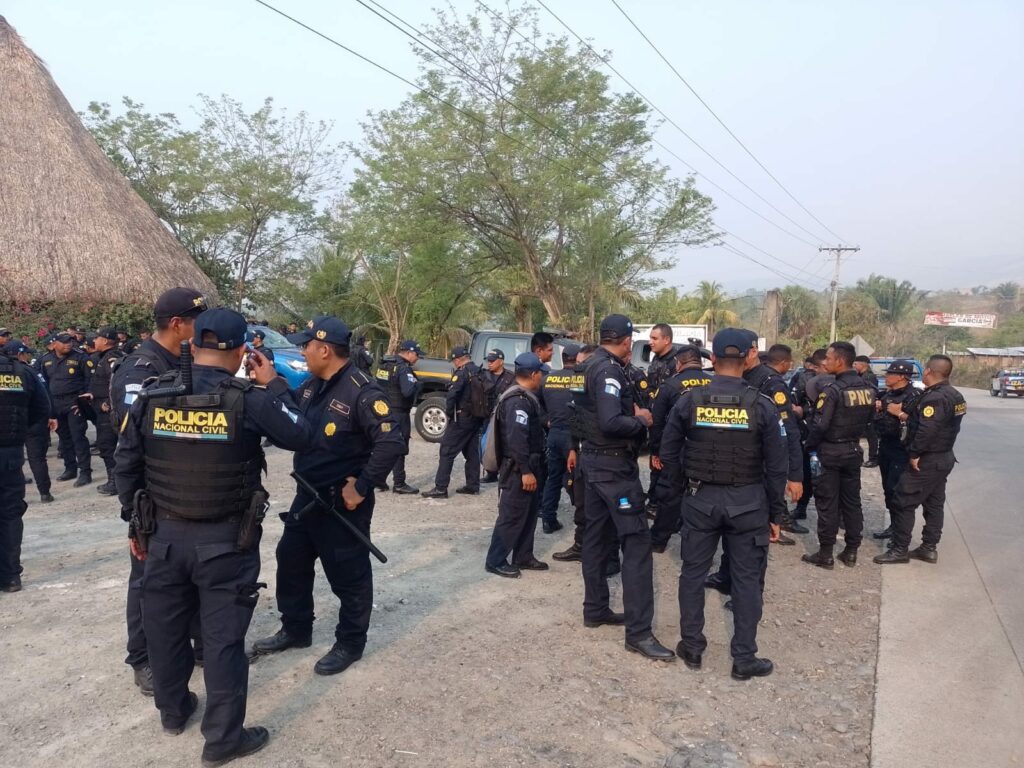
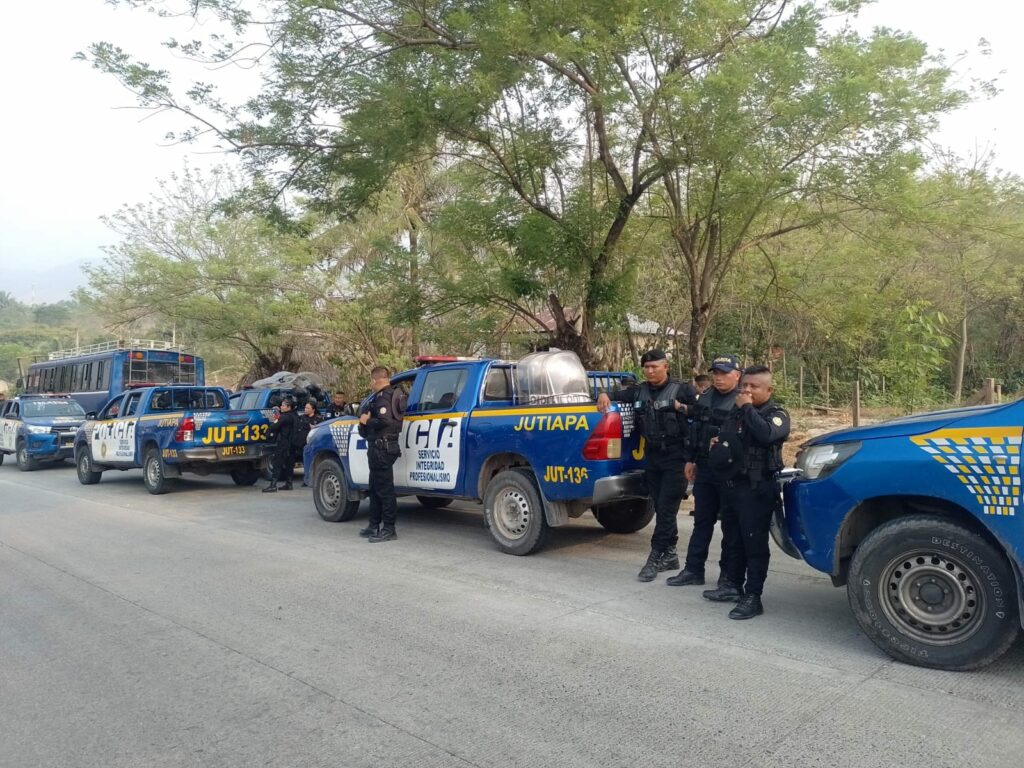
Photos: Carlos Ernesto Chuc
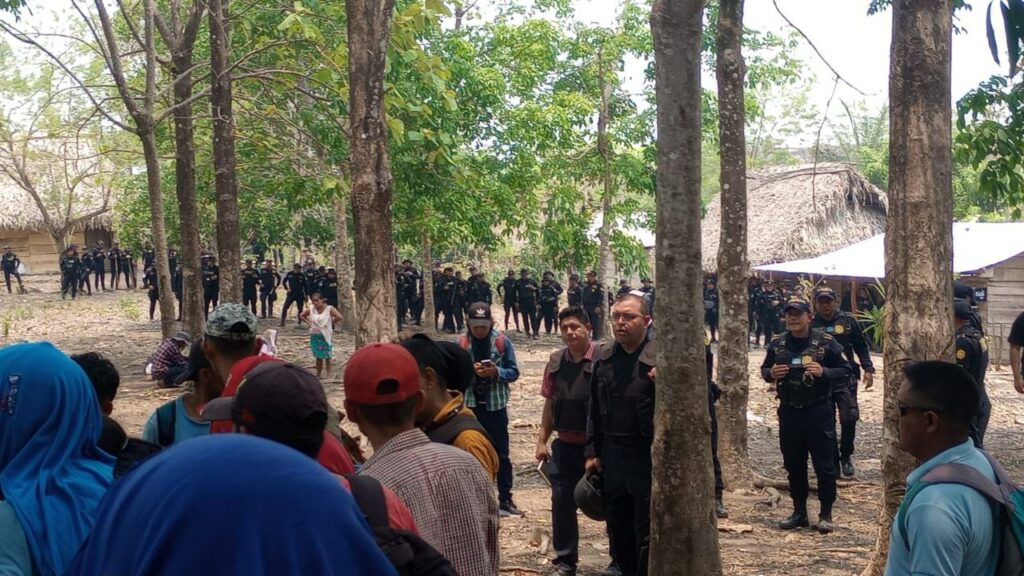
Photo: Festivales Solidarios
Since Friday May 17, ancestral authorities of communities around Lake Izabal have denounced the eviction threats. Worse still, they assured that the company Naturaceites seeks to capture or assassinate community leaders.
Cuc Pan details that, according to the information received, agroindutry’s plan is to detain him together with other Q’eqchi’ authorities, Pedro Choc Ico and Mariano Choc Bol. According to Cuc Pan, if they don’t capture the ancestral authorities, the company Naturaceites is willing to contract hitmen to assassinate them.
The Indigenous Q’eqchi’ authority sustains that these threats are occurring in a context of other sources of intimidation. Since January 2024, they’ve heard detonations coming from the nearby Navy yard. Cuc Pan explains that the detonations are being carried out with high caliber weaponry.
“They can capture or assassinate a couple of us, it doesn’t matter. We have men, women, youth, and children who are claiming their historical rights,” emphasizes the authority, explaining that the lands are Indigenous lands, “not what a document says, but what history says.”
On Thursday morning, May 23, ancestral authorities of Iximulew—with participation of Mayas, Xingas, and Garífunas—spoke out against what they described as the “illegal eviction” of 29 families of Buena Vista Tzinté.
Through a communique, the Ancestral Maya Q’eqchi’ Council of Estor condemned the human rights violations committed by the public prosecutor and the judge Ayala Tello. They also declared the attorney general, Consuelo Porras, non grata.
“We raise our voices as ancestral Maya Q’eqchi’ authorities in our territories. We demand respect for our rights, especially from the public prosecutor’s office. They are working at the service of corruption, organized crime, large landowners, and extractive companies. Coopted judges are criminalizing the brothers and sisters who defend mother earth and their territories,” they sustain in the document, demanding an end to the evictions and criminalization.


